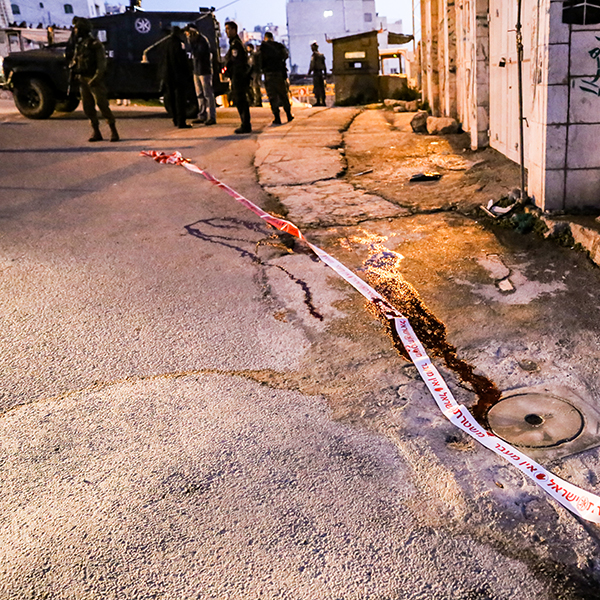Tag: International law
-
Israeli forces continue policy of arbitrary and violent arrests in Hebron’s Old City
25th February 2016 | International Solidarity Movement, al-Khalil team | Hebron, occupied Palestine On 25th February 2016, Israeli forces violently arrested two Palestinian men in the souq, the Palestinian market, in occupied al-Khalil (Hebron). Both of them were arbitrarily arrested and finally allowed to leave only after residents intervened. Israeli forces entered a Palestinian house…
-
Wreath-laying in commemoration of Ibrahimi mosque massacre
25th February 2016 | International Solidarity Movement, al-Khalil team | Hebron, occupied Palestine 25 February 2016 marks the 22nd anniversary of the 1994 Ibrahimi Mosque massacre in occupied al-Khalil (Hebron). In commemoration of the Palestinians killed in this massacre, the Hebron Defense Committee (HDC) organised a wreath-laying at the martyrs cemetry. Baruch Goldstein, an Israeli…
-
Children face fear and threat of violence after young woman shot in Hebron
22nd February 2016 | International Solidarity Movement, al-Khalil team | Hebron, occupied Palestine A day after 21-year old Yasmin al-Zarou was gunned down by Israeli forces when passing the Salaymeh checkpoint, many of the children were forced to walk right past where she had layn on the ground bleeding – where her blood is still…



